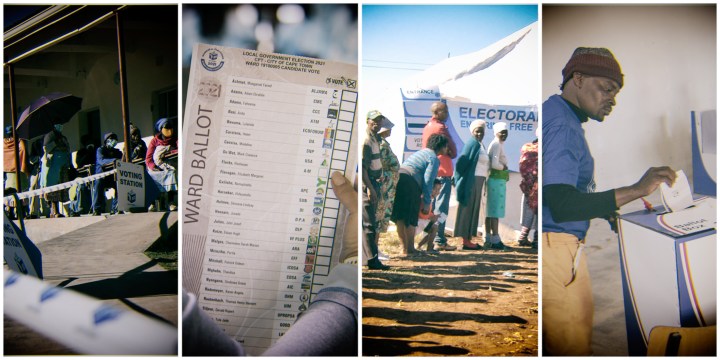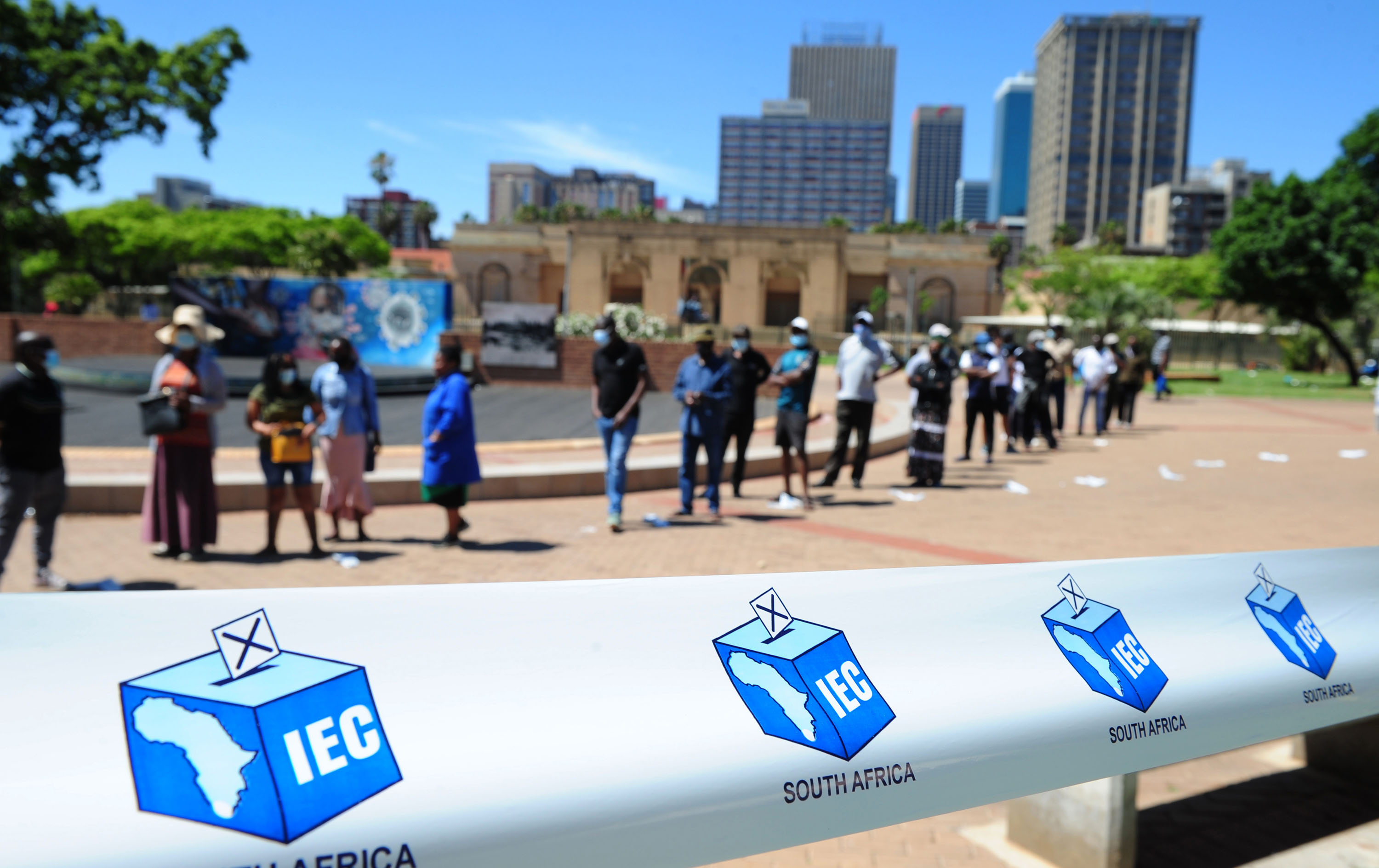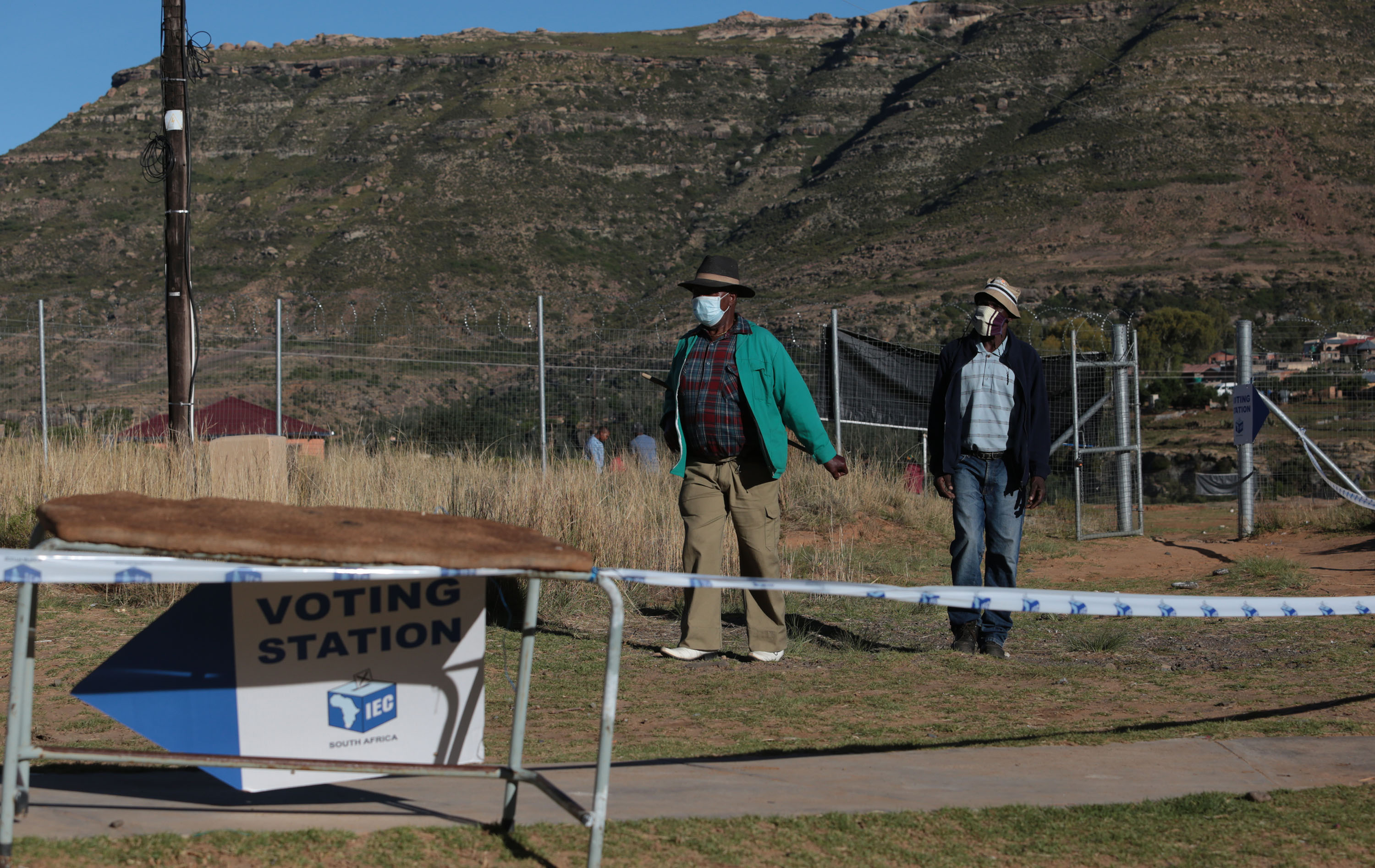ANALYSIS
Electoral reform is absolutely critical but should not be rushed

In the end, it may be that the Constitutional Court will be faced with an impossible choice: Does it allow the 2024 election to go ahead in defiance of its clear previous ruling that there be electoral reform, or does it stop the election?
One of the debates in our democracy is whether we need electoral reform, and what kind of voting system we should adopt for our political landscape. Many factors are driving this debate and many people claim to want real change. But it is entirely possible that despite a Constitutional Court ruling and this support for change, reform will not happen before the 2024 general election.
It is simply not in the interests of those who currently enjoy political supremacy to allow a substantive reform to happen, to essentially allow individuals to compete against the established political parties. An important question that we have to answer first is: What will electoral reform bring to South Africa?
(It is important to remember here that one’s unhappiness with the current state of things or the governing party should not necessarily be blamed on the system that governs how people and parties are voted into power.)
Earlier this week, the organisation My Vote Counts, which has done so much to ensure greater accountability in our politics, warned that the groups pushing for changes may have to go to court, as it believes Parliament wants to institute electoral reform that would not go far enough to make a real impact on the quality of our political environment. In essence, the organisation believes that a poor system could be adopted, despite the fact that a better system has been proposed by the majority of a ministerial advisory panel.
There are many other issues that have bedevilled this process.
ConCourt ruling
It was started by the Constitutional Court’s ruling, just before the pandemic, which ordered Parliament to change the voting system to allow an individual to stand for election to Parliament. In other words, they would not have to do so through membership of a political party (or … as some have done, start a political party simply to get themselves into Parliament).
The central tension may be this: up until now, our system of voting has been proportional representation, which means if you get, for example, 1% of the vote nationwide, you get four seats in the National Assembly (there are 400 seats). So, if you have an individual who gets, for example, 10% of the votes, how do you divide that up?

Voting at Joubert Park in Johannesburg in the local government elections on 1 November 2021. (Photo: Leon Sadiki)
This has led to endless debates over “leftover” votes (if an individual gets 1% of the vote, they would go to Parliament, but what happens to the other three seats?), discussions about what happens to the seat if the candidate dies, and suggestions by some parties that a person who leaves a party would have a “cooling-off period” before being allowed to run for a seat in Parliament (one can imagine the tension in parties just before an election if this were to happen).
And that’s all before the start of the nearly impossibly complicated discussion about provincial legislatures.
While that may be the structural and legal discussion in Parliament, underneath all of that is another dynamic — all of the parties currently in Parliament have a shared interest in shutting individuals out of Parliament. They do not want more competition.
And it may be this which has led to them doing as little as possible or trying to introduce the most limited changes possible.
This is also why it is almost inevitable that, whatever happens, a court case will follow.
This too may be in the interests of the parties, because the protracted judicial process would allow them to ensure that no reform happens before the 2024 election.
An impossible choice
In the end, it may be that the Constitutional Court will be faced with an impossible choice: Does it allow the 2024 election to go ahead in defiance of its clear previous ruling that there be electoral reform, or does it stop the election?
Faced with that, it would surely be compelled to allow the election to go ahead — democracy is never helped by stopping people from voting. Especially as it would involve a system which had been used so many times before. Conversely, stopping the 2024 election from going ahead would merely keep the current parties in power for longer.
(To paraphrase a Vietnam-era statement, the ConCourt would have destroyed South Africa’s democracy in order to save it. — Ed)
While this is frustrating for many who want change, it may have a beneficial effect over the longer term because the current conversations are taking place under intense time pressure. In other words, it may be better to have a longer, more informed conversation than to make changes under extreme duress.

Voters on their way to cast votes at Hoita Senior Secondary School in Sterkspruit on 1 November 2021. (Photo: Felix Dlangamandla / Daily Maverick)
While many people say they want electoral reform, it is important to interrogate their desires more closely.
For example, do people want electoral reform in the hopes of getting a different electoral outcome? Or is it to ensure better accountability?
If it is about accountability, will reform really work?
First, it is not clear that any particular system will necessarily come to a different outcome than the one we have now. And in fact, some systems that have been proposed could boost the ANC and the DA. While this may have some benefits, it is probably not what most proponents of electoral reform want.
Visit Daily Maverick’s home page for more news, analysis and investigations
Second, even if a constituency-based system is introduced (where a member of Parliament represents a particular geographic area) it is not clear what real change would happen. For example, it seems likely that most people in the UK vote for a party based on its leader, not the person representing their area. Otherwise, why would the Labour Party have lost so much support during the Jeremy Corbyn era?
It also means that British voters wanted the Conservatives to win the last election because they wanted Boris Johnson to be prime minister.
In a more direct system (but through an electoral college), the US elected Donald Trump as president — and may do so again.
None of this suggests that those systems lead to more accountability.
Constituencies vs proportional representation
Intriguingly, there is a natural way to compare whether a system of geographical constituencies would lead to a different outcome than a system of proportional representation.
In our local elections, in metros, people vote twice. One is a proportional representation vote for the metro, the other is a constituency vote for their ward.
While each ward and city could be different, at least one expert has suggested that if there were no proportional representation ballot, and just a geographical “first past the post” system, it seems likely that the ANC would be in direct control of more places than it is now.
Again, would this lead to more accountability?
Also, it is not clear that having individuals in Parliament would really change very much.
As Professor Anthony Butler has pointed out, even an individual would need a network of support to win enough votes to get into Parliament. It is hard to see what the difference would really be between this network and a political party.
Butler also suggests it would lead to people who campaign on a single issue. This could make our politics much more complicated and lead to a huge amount of horse-trading on issues and policy in a quest to form coalitions.
It may even make it virtually impossible for durable coalitions to be formed because they would be held hostage to single issues.
One of the key elements of our society is that it is possible for a combination of civil society groups, politicians and lawyers to make real change — our democracy is still deepening. It is possible now for there to be a real change to our electoral system, something that seems politically impossible in, for example, the US.
This may turn out to be an important period, one that could set our democracy on a new path. We should not waste this opportunity — long-term decisions should not be made under such time pressure. And politicians should not be able to frustrate the process only for their own ends. DM

















 Become an Insider
Become an Insider
Its a fact is that the ANC will never change to a system that will ensure they are voted out.
In the current list system the ANC appoint thier own cadres to parliament and therefore the cadres\mp’s loyalty is to the party not to the constituancy he/she is allocated. Whereas in the Westminster system the constituancy elects there own MP and the elected MP loyalty is to his constituency and not the party.
Introduce Direct Democracy with wards and PR at all 3 levels. www directdemocracy org za
Part 1 of 2
Everything mentioned by Mr Grootes should be of valid concern to all South Africans. However, conceptually there are certain things that lock us into only these few options and leaves us with deciding between the lesser of two evils. Perhaps, if we are to allow ourselves the time, we should go a step further and revisit some of the other ‘untouchable’ cogs in a democracy.
[note: I use the word “man” in the abstract sense of “mankind”, not as a gender descriptor]
1. One man one vote. This entire principle is based on the error that, to borrow from Aristotle, if men are equal in one thing, they are equal in all things. I think the core aim of representative politics itself – to find the best man for the job – should override the one-man-one-vote idea. A mechanism to consistently find good representatives is more important than pretending that the playing field is level only because each man has one vote.
2. Tier-system voting. If we want to find the best man for the job, it follows that the brightest thinkers should be at the forefront of the means to do so. Commerce already discriminates (by necessity) on academic merit. Would it be so alien to use a similar idea to determine a system of tiers that corresponds to the broad hierarchies of government? Something like all citizens can vote in local elections; citizens with matric can vote in local and provincial elections; citizens with a tertiary qualification can vote in local, provincial, and national elections.
Part 2 of 2
3. Voting directly for each portfolio. Taking the above #1 and #2 together, it becomes possible to vote directly for each ministerial portfolio because the voting pool for these top positions is so small. Parties can put nominations forward but the people will decide. Directly. And not just any people, only the best thinkers are required to decide on the most important jobs.
3. Voting age. Although the workings of the above mechanisms can be taught at high school, there is a purely biological reason to substantially raise the voting age. The prefrontal cortex helps curb impulsive behaviour, recognise peer pressure, and for critical thinking in general, but it only fully matures around the age of 25. Of all the mechanisms to find the best man for the job, this is probably the broadest and easiest to implement for purely non-partisan reasons. This biological truth should also make everyone extremely sceptical of anyone wanting to lower the voting age.
These are just a few of the concepts we can wrestle with if we free ourselves of the prejudices that come with past failures. What good is it if all discussions in this vein always happen behind closed doors amongst only politicians that all already agree with one another? Can the average citizen engage on these topics? If so, where?